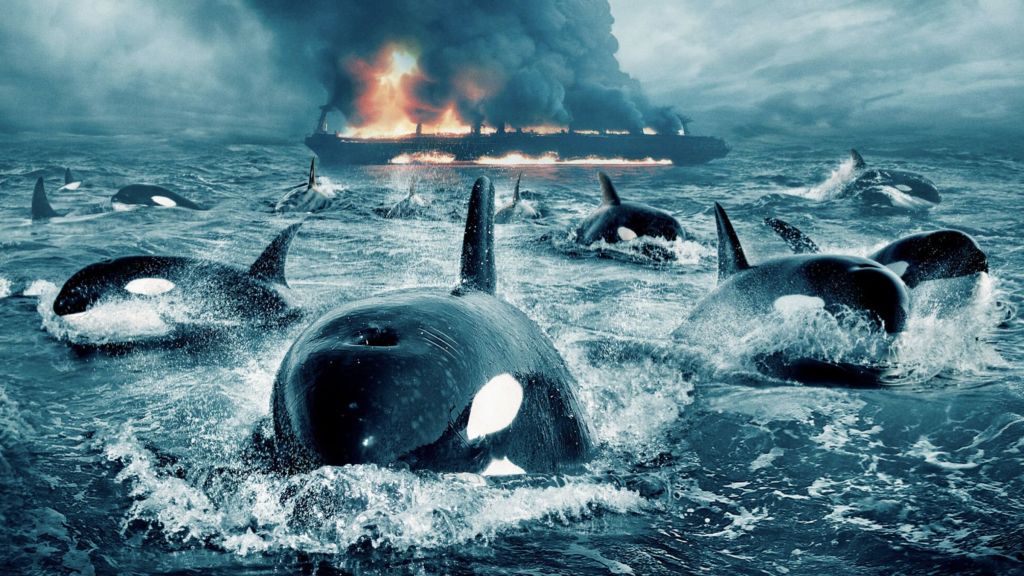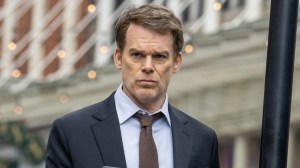HBO and its sibling streaming service HBO Max have built their brand on prestige television, becoming the home for cultural phenomena like Game of Thrones and The Last of Us. While these massive hits command the spotlight, the platform’s deep library also includes a wealth of international co-productions that often fly under the radar. Tucked away in HBO Max’s catalog is a high-concept science fiction thriller that deserves far more attention. Released in 2023, this ambitious series adapts a beloved bestseller into a global-scale disaster story, trading in asteroid impacts and alien invasions for a terrifyingly plausible threat that rises from the darkest corners of our own planet.
Videos by ComicBook.com
The series is The Swarm, an eight-episode eco-thriller based on the internationally bestselling novel by Frank Schätzing. The story begins with a series of bizarre and increasingly hostile events occurring in the world’s oceans. Off the coast of Canada, whales begin displaying unprecedented aggression, attacking and sinking boats. In France, a deadly pathogen spreads through lobsters, poisoning seafood supplies. On the floor of the North Sea, a new species of ice worm destabilizes entire continental shelves, threatening to trigger mega-tsunamis. To investigate the matter, an international group of scientists is forced to work together, slowly realizing these are coordinated attacks. As such, the central mystery of The Swarm revolves around an unknown enemy, a collective intelligence from the deep sea that has declared war on humanity.
The Swarm Slow-Burn Mystery Is Its Biggest Strength

The Swarm deliberately avoids the pacing and structure of a typical disaster blockbuster. Instead of a rapid succession of action set pieces, the series unfolds as a methodical and gripping scientific procedural. The narrative is fragmented across multiple continents and perspectives, asking the audience to piece together the terrifying truth alongside its characters. In the Shetland Islands, a young marine biologist named Charlie Wagner (Leonie Benesch) discovers the methane-destabilizing ice worms. In British Columbia, the reclusive whale researcher Leon Anawak (Joshua Odjick) is the first to witness the cetaceans’ organized violence. In Kiel, Germany, the celebrated professor Sigur Johanson (Alexander Karim) finds himself at the center of the effort to unify these disparate findings into a single theory.
Each new discovery, from a plague of jellyfish in Venice to a swarm of crabs on the South African coast, functions as another piece of an apocalyptic puzzle. Because of that, The Swarm trusts its audience to follow the scientific process, creating a palpable sense of dread as the characters move from disbelief to academic debate and finally to the terrifying certainty that the planet itself is fighting back. By focusing on the scientists’ struggle to understand the threat, The Swarm grounds its high-concept premise in a very human story of discovery and desperation, making the eventual confrontation feel earned.
The Swarm High-Concept Conclusion Remains Divisive

Warning: Spoilers below for The Swarm. The driving force behind the oceanic attacks is a mysterious, non-human intelligence that the scientists eventually dub the “Yrr.” This entity is presented as a planetary immune system that has identified humanity as a virus. After centuries of pollution, overfishing, and climate change, this deep-sea consciousness has simply decided to eradicate the infection. This compelling premise sets the stage for a finale that completely subverts the expectations of a conventional “humanity vs. aliens” showdown, a choice that has proven to be incredibly divisive among viewers.
Without revealing specific plot points, the ending of The Swarm is a wild swing. It largely abandons the disaster-movie framework in favor of a cerebral, philosophical, and deeply ambiguous conclusion that forces the characters — and the audience — to confront humanity’s role in the natural world. The final act is a challenging sequence that prioritizes its thematic questions over explosive catharsis, which explains why it’s so controversial. This kind of interpretative ending can be frustrating for viewers seeking definitive closure, but for those who appreciate sci-fi’s ability to spark debate, it is a truly memorable and audacious finale. It is a conclusion designed to linger, prompting conversation about what it means to communicate with a form of life so ancient and vast that humanity may not be able to comprehend the answer.
What do you think? Leave a comment below and join the conversation now in the ComicBook Forum!









